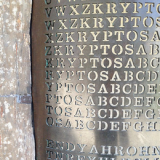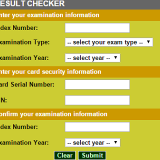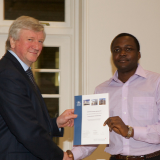How to Prepare for the IELTS
The International English Language Testing System (IELTS) is an English test taken by individuals from countries where English is not spoken as the first language to prove they have a good understanding of the English language. It has helped millions of people from countries in Africa (for example, Nigeria, Ghana, Zambia, etc.), Asia (for example, India, China, Malaysia, etc.) and South America (For example, Brazil, Argentina, etc) migrate to English-speaking countries such as United Kingdom, USA, Australia, Canada, and New Zealand to study, live, and work.
Preparing for the IELTS is not as difficult as most people think; you only need to get hold of the materials to study the format and know what to expect on the test day. The test format includes the speaking, reading, writing and speaking section. Study it to understand the questions they’ll ask.
You should also read the rules and regulation of the IELTS which you will find in the Notice to Candidates and Declaration when filling the application form. You should also read it to learn more about the IELTS band score.
Here are some strategies that will help you prepare for IELTS and also ensure you get the highest score:
Know the Test Format
There are two versions of IELTS, the IELTS Academic test, and the IELTS General training test. The reading and writing sections of the academic test differ from the general training test. But the listening and speaking sections of both versions are the same. You visit our IELTS resource page to get familiar with the formats of the test. You can also choose to get a copy of the “Information for Candidates” booklet which contains detailed information on how to answer the test questions correctly.

Have an Ideal Score in Mind
Check the IELTS score the university institution, company or organisation requires from you. If you are applying to a University, it most probably would have a minimum TOEFL score you must have to get admission into it. Contact them to know their requirements as it would help set your ideal score.
For example, if the minimum score is 6, you can set the perfect score to 7 or 8.
Ensure you are setting a realistic score and display somewhere you’ll see it every day and get motivated to study for the exam.
Use Practise Materials
Using practise materials will also be highly beneficial as it will give you an idea of what to expect. There are various practise materials such as the IELTS practice test papers and answers which help you take the test under timing.
Use Self-Study Books
You can also get self-study books like the IELTS General Training & Academic Study Guide which has helped lots of candidates ace the test. The book is a comprehensive study guide which contains strategies for taking the test including the format and scoring method.
It contains lots of details on how to tackle the reading, listening, writing, and speaking sections of the test and also comes with practice questions to help you better prepare for the test. It also contains URLs to resources that prepare you for listening section including practise tests.
The book does not come with an audio cd or DVD, but you can get it arranged for you by sending the writer an email.
Take a Preparation Course
You can enrol for online classes or IELTS centres and language schools located anywhere in the world to help ace the exam. With a preparation course, you will learn how to write a short essay or letter writing a test one task of the IELTS test. You’ll also get an immediate answer to questions, feedbacks, and relations with other students.
Lots of test takers have found that it helped improve their performance by providing more insight into the test and enhancing their confidence. However, it is not compulsory you use the preparatory course.
Register Early
If you have taken this test probably because the foreign university you’re applying to have requested for it, you must apply early. This is because there is a limitation on the number of people that can take the test on a particular day, and those who register late will not get considered. So, you need to save your spot by registering early to get your test date. Remember, you will pay the test fee after registering.
Registering early and directly through the British council gives you an opportunity to receive free IELTS study materials from the British Council (study guides, cd, etc) on time. This will give you enough time to utilise the benefits of these materials.
Improve Your English
The practise questions will help you know what to expect in the test, but you will still need to play your part by taking a conscious effort to improve your English grammar and usage. You can do this by ensuring that you always speak English to your family member and friends; no pidgin English or native language.
Take it a step further by listening to a radio station where they speak only English. You can watch films or television programs produced in English. Also, read publications, write letters, notes, emails, or practise essay writings.
Relax Before the Test
Since you’ve been practising various test questions, it’s natural to feel nervous and overwhelmed as the test dates approach. Feeling this way will only leave you disorganised and afraid. You must try to feel relaxed and ensure you have plenty of rest.
Visit the Test Centre Before the Test Date
It’s important to visit the test location before the test date. This would enable you to get familiar with the route to the test centre and would enable you arrive on time on the exam day.















